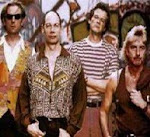Steven Hayward
Thomas Paine's famous tract Common Sense helped ignite our original revolt against arbitrary rule. Comes now Philip Howard's The Death of Common Sense to add fresh fuel to the contemporary revolt against arbitrary rules. But recalling Tom Paine's understanding of what common sense about government entailed allows us to see that Howard's title is both apposite and ironic.
Like Paine's slender tract in 1776, Howard's book has struck a national nerve, soaring on the best-seller list, landing its author on Oprah (to debate the now-infamous McDonald's hot coffee case), and sending politicians from both parties scrambling to enlist Howard to their side. Bob Dole has had Howard in for a chat, and President Clinton got Howard to accompany him to a photo-op on cutting government red tape.
The Death of Common Sense is not recommended for people with high blood pressure or insomnia. It's loaded with splendid examples of regulatory and legal stupidity, and contains a blood-boiling outrage every few pages. Howard hits more targets than a gunman with an Uzi, all of them deserving. He blasts the Occupational Safety and Health Administration, local building restrictions, the Federal Aviation Authority, the Environmental Protection Agency, the State Department, and local health regulators. And that's just in the first 20 pages. My favorite bon mot is his tongue-in-cheek suggestion that we establish a bureaucracy to make life miserable for other bureaucrats, to be called the Bureau of Accusations, Stings, and Humiliations, or BASH.
Beyond his barbs at the Endangered Species Act, the Americans with Disabilities Act, tort litigation in general, and a host of other targets, Howard also makes clear how the nature of individual rights has been distorted by the contemporary rights industry. Rights, Howard reminds again, are rights against the law, not positive goods that government is obligated to provide for any and all claimants.
Others have made this point more analytically and philosophically, but Howard's anecdotal approach certainly makes it more vivid, which helps explain the book's great success, and great value. The "rights-as-claims" mentality easily blends into a scam, as Howard illustrates with the example of an out-of-service New York City transit bus hit by a garbage truck. Even though the bus was out of service and empty, 18 people claiming to be riders filed suit for injuries. Such scams often succeed, because of the perverse calculus of the lawsuit settlement game.
Howard quotes from Hayek's The Constitution of Liberty, and even from REASON's own Tom Hazlett. He offers some judgments of genuine aphoristic quality, such as: "Government accomplishes virtually nothing of what it sets out to do. It can barely fire an employee who doesn't show up for work." Or this: "Modern law has not protected us from stupidity and caprice, but has made stupidity and caprice dominant features of our society." Or, in a slightly softer vein: "Law must not promise to purge people's souls. It cannot. Law can set up the conditions for interaction and work toward changes over time. When it tries to do more, it only drives us further apart."







































